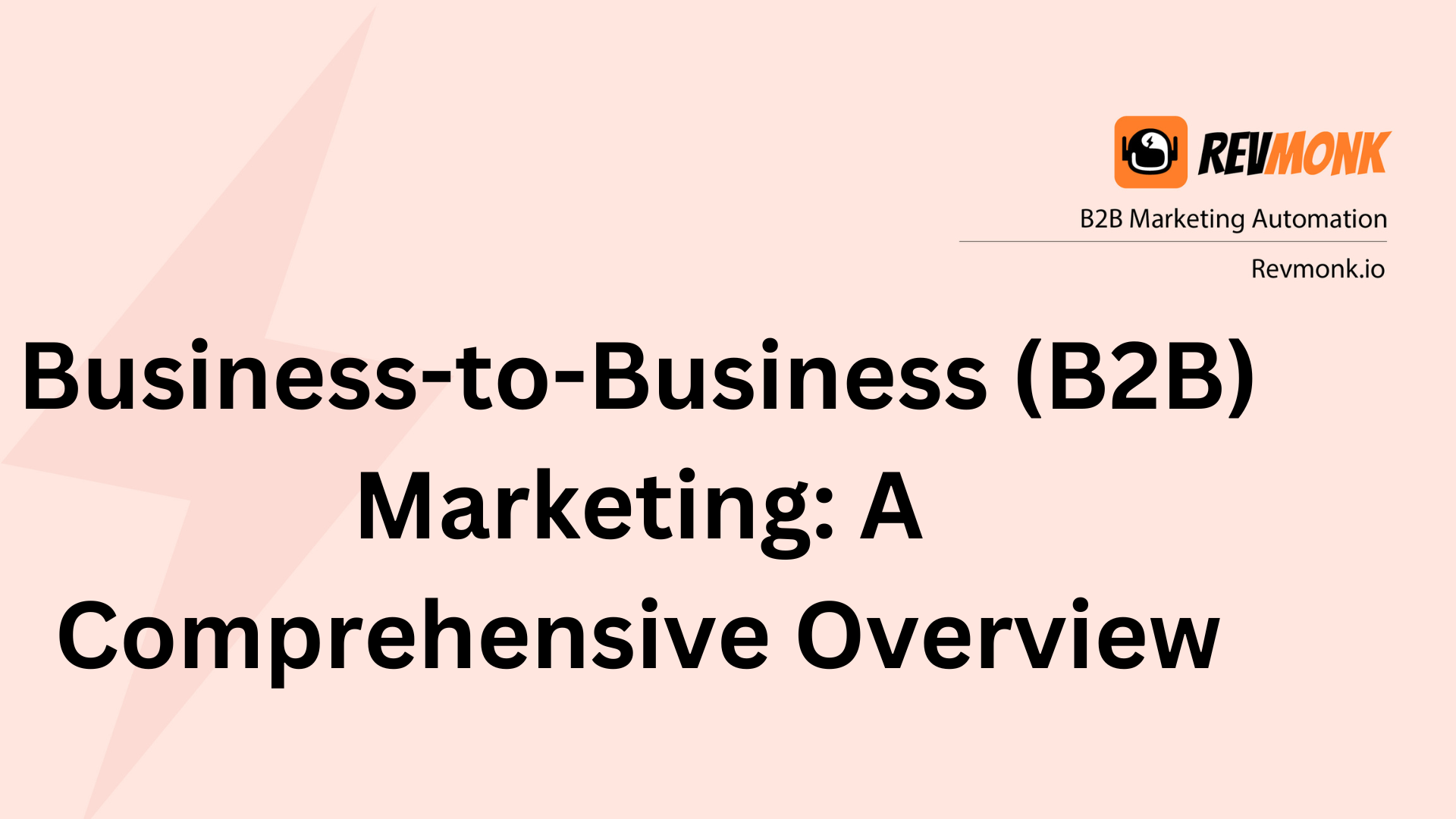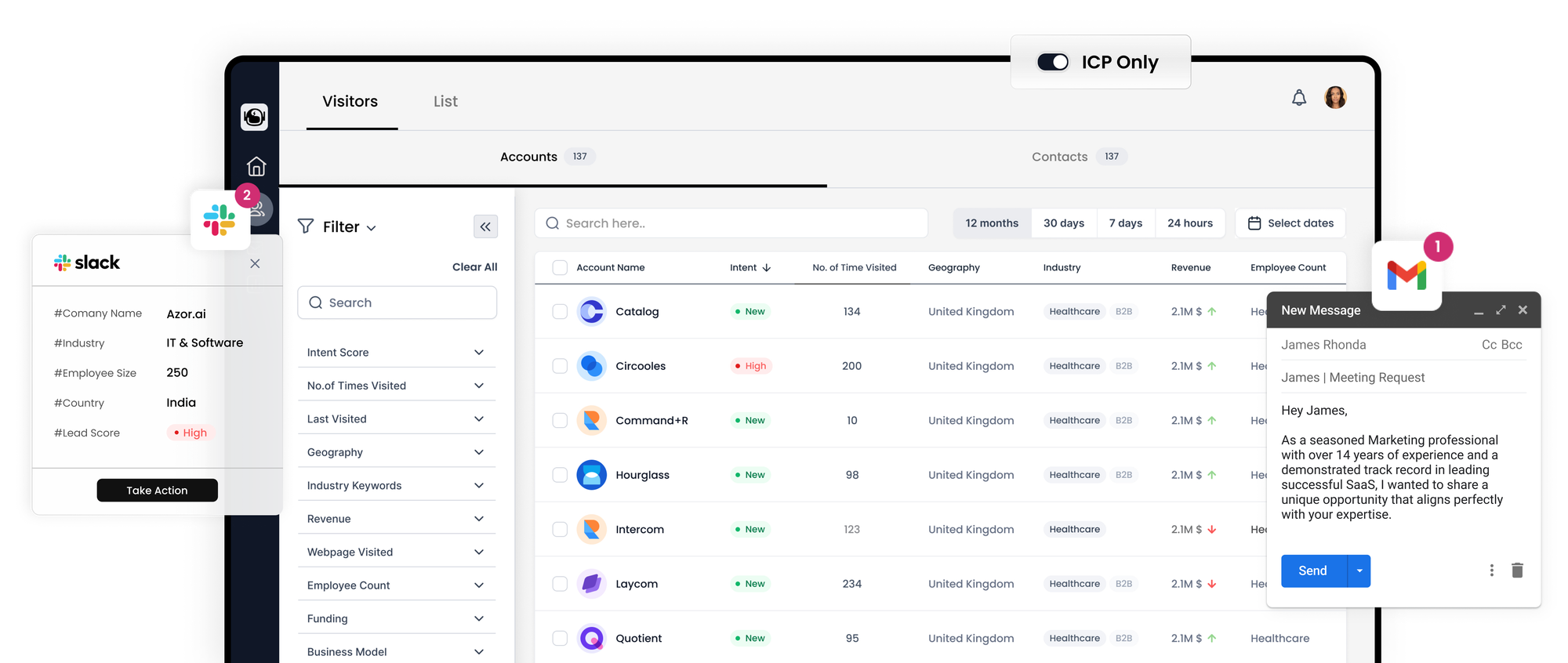Business-to-Business (B2B) Marketing: A Comprehensive Overview

Introduction to B2B Marketing
B2B marketing, an abbreviation for business-to-business marketing, pertains to all marketing strategies directed at companies as clientele, as opposed to business-to-consumer (B2C) marketing, which targets individual end-users. While both B2B and B2C marketing employ similar tools, B2B marketing is characterized by its highly focused approach.

In-Depth Exploration
Distinguishing between B2B and B2C marketing is essential, as marketing efforts geared towards companies significantly differ from those aimed at individual consumers. The fundamental distinctions are as follows:
1. Audience Size
B2B marketing typically targets a smaller customer base compared to B2C, where the customer pool can be considerably larger.
2. Integration with Sales
B2B marketing necessitates close collaboration with the sales department, ensuring that marketing efforts seamlessly transition into the sales process. This alignment is crucial to funneling leads generated by marketing into the sales pipeline efficiently.
3. Personalization
B2B marketing adopts a more personalized approach, as it aims to appeal to individuals who play decisive roles in the procurement process. These include department heads, managing directors, executives, senior staff, and management advisors, as well as finance department personnel.
4. Advertising Scale
Unlike B2C, which often employs large-scale advertising campaigns, B2B marketing tends to focus on smaller, more direct approaches. Establishing a company's business expertise through specialized articles related to its industry is a common tactic. Professional networks like LinkedIn are also invaluable in reaching the right target audience.
The Significance of Online Presence in B2B Marketing
In the realm of B2B marketing, maintaining a strong online presence is imperative, as decision-makers seldom commit to orders based solely on advertisements. Research plays a pivotal role, with over two-thirds of decision-makers conducting online research on topics and potential suppliers. Employing Search Engine Advertising (SEA) and Search Engine Optimization (SEO) strategies can boost a company's visibility in search rankings, increasing the likelihood of receiving inquiries.
Tradeshows and Events in B2B Marketing
Tradeshows and events represent a substantial growth area in B2B marketing. These gatherings offer opportunities for businesses and their sales teams to connect with potential partners. However, given the abundance of industry-specific tradeshows, a "less is more" approach often proves effective. Rather than trying to engage with as many potential customers as possible, B2B success often hinges on forging deeper, more personal relationships. This personal touch is particularly vital in B2B, where communication should flow smoothly, unlike the "production line" approach often found in B2C marketing.
Developing an Effective B2B Marketing Strategy
Creating a successful B2B marketing strategy necessitates a meticulous approach, starting with the precise definition of the target audience. Key considerations include the size of the companies being targeted, their industry, and any specific sectors within that industry that hold particular importance.
Once the target audience is identified, the strategy must determine the most effective channels for reaching them. Is the audience active on the internet? Can they be reached through platforms like Facebook, or is a professional network like LinkedIn more suitable? Are they regular attendees at specific trade shows or events?
Furthermore, the strategy should outline clear objectives, whether it's lead generation or brand awareness enhancement.
To execute a comprehensive B2B marketing plan, it is advisable to leverage a combination of tactics. These may include optimizing the company's website, ensuring it is easily discoverable and user-friendly. Collaborating with B2B portals alongside the corporate website can also generate a substantial volume of leads.
SEA campaigns can effectively boost brand awareness, while content marketing adds value through informative and relevant content, establishing the company's expertise. Additionally, social media, although generally less suited for B2B marketing due to its lack of targeted communication, can still be valuable for attracting business customers when deployed correctly.
Social Media in B2B Marketing
While social media may not be the primary focus of B2B marketing, it can still play a role. Engaging content on platforms like Facebook, supported by targeted advertising, can increase brand awareness. Participating in discussions relevant to the industry on social media channels can showcase expertise and build a strong reputation—a vital factor in B2B marketing.
Social media can also facilitate the sales process by discreetly guiding decision-makers towards relevant articles or resources, making subsequent contact less unexpected and more receptive.
Lastly, requesting recommendations from business partners or encouraging likes and content sharing on social media can enhance brand awareness, improve company image, and lend credibility to advertising statements.
Conclusion
B2B marketing differs significantly from B2C marketing. It hinges on identifying the target audience and engaging them through personalized, targeted measures. Personal connections, a solid reputation, and non-intrusive advertising play pivotal roles in B2B success. An effective online presence, including SEO, SEA, and content marketing, is crucial, while social media can supplement these efforts when used strategically. In the B2B arena, success is less about quantity and more about building quality relationships with business partners.
